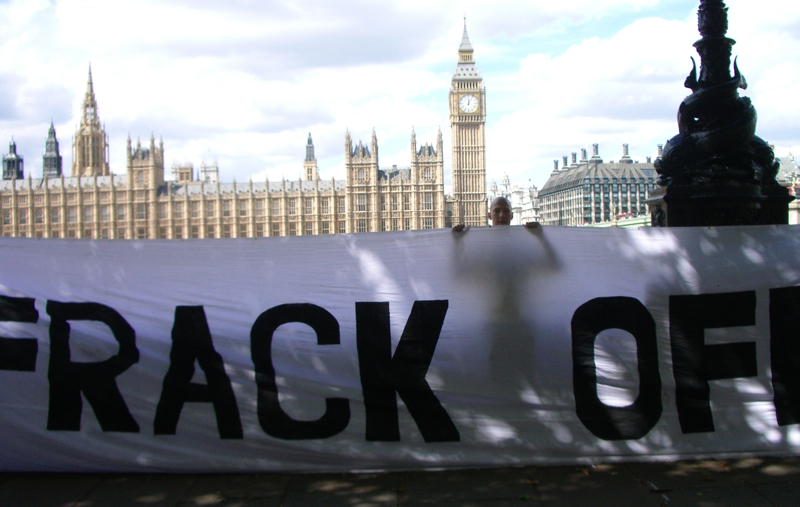True or false? Fracking equals cheap gas


The UK government today gave the go-ahead to resume exploratory fracking for natural gas, prompting economic criticism that the controversial practice will not drive down gas prices the way it has in the U.S.
Fracking, or hydraulic fracturing, is the controversial technique of blasting underground shale rock with water, sand and chemicals to release trapped natural gas.
The decision to restart drilling also provoked the usual jeers from environmentalists. Many green enthusiasts abhor fracking, noting that it can pollute water supplies, that gas is a fossil fuel that belches CO2 into the atmosphere - exacerbating global warming and climate change - and that the process requires a lot of precious water.
Fracking can also trigger earthquakes, which is what happened during drilling by Cuadrilla Resources in northwest England last year. The small trembler prompted the UK to temporarily shut down operations - a ban that the government lifted today.
BEWARE A PRICE RISE
Economically, on the positive side, the fracking rush in the United States has created jobs, is helping to reduce the country's reliance on energy imports and is pushing down energy bills. A report on BBC Radio 4 today said energy prices have halved as a result of fracking.
But don't expect price reductions from British fracked gas. Expect the opposite, according to the BBC, which writes that the Committee on Climate Change (CCC) - a government advisory body - "warns that relying heavily on gas for future electricity supplies would leave households vulnerable to higher bills."
The "dash for gas" will cost consumers an increasing amount through 2050, by which time it could add £600 ($960) to an average annual power bill, CCC said. By comparison, the group noted that a shift to renewables such as wind and solar would add about £100 ($160) to the annual bill by 2020, after which increases would level off.
CARBON INTENSE
CCC chief executive David Kennedy explained during a radio interview that a lot of the increase would come from taxes imposed on carbon emissions.
"Because it's carbon intense, because we have carbon budgets here, because we have carbon caps in Europe, there is a price on carbon," Kennedy said. "That price will go up over time , and gas-fired power generation will become increasingly expensive."
He also disputed claims that shale gas could increase Britain's gas supply by a quarter and thus help push down prices in a supply and demand scenario. He claimed the supply increase would be only 10 percent at most, an amount that "can't change the price of gas."
Reiterating his earlier point, he added, "Even if there was enough, it is carbon intense, it will be increasingly expensive for that reason, and we should be developing low carbon technologies."
The UK has not yet started commercial fracking production and is only investigating potential fracking reserves - a process that was on hold until today's decision.
You can listen to Kennedy and former Shell executive John Hofmeister debate on BBC Radio 4 here, for as long as the link remains live. The segment aired on Dec. 13. It starts about 2 hours and 10 minutes into the recording, just after the hourly news report.
Photo: frack-off.org.uk
This post was originally published on Smartplanet.com